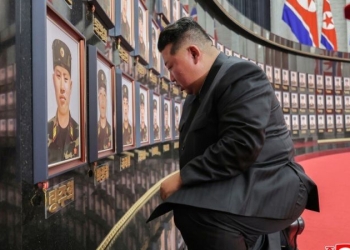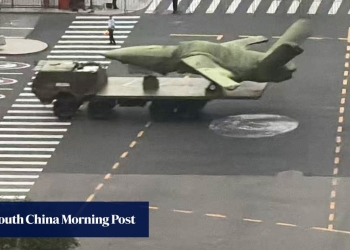A team of analysts, including Jessica Sobieski, Christina Harward, Jennie Olmsted, Justin Young, Olivia Gibson, and George Barros, reported on the evolving dynamics of the Russian offensive campaign as of September 1, 2025, at 8:45 PM ET. The Institute for the Study of War (ISW) provides an interactive map detailing the ongoing Russian invasion of Ukraine, which is updated daily alongside other static maps. This comprehensive analysis includes key insights and developments while emphasizing the necessity of using a desktop computer for accessing certain data-heavy tools.
As of the data cut-off time at 12:45 PM ET on September 1, Kremlin officials have publicly denied statements from the White House regarding potential Ukrainian-Russian or trilateral meetings involving the United States. Russian Presidential Aide, Yuriy Ushakov, clarified that no agreement exists for a bilateral meeting between Ukrainian President Volodymyr Zelensky and Russian President Vladimir Putin, nor for a trilateral meeting involving U.S. President Donald Trump. This stance challenges President Trump’s diplomatic overtures aimed at resolving the Ukraine conflict and undermines the prospect of negotiation.
During an address at the Shanghai Cooperation Organization (SCO) summit in Tianjin, China, President Putin again reiterated his substantial demands regarding Ukraine, asserting that the origins of the ongoing conflict stem from a Western-instigated coup in 2014, rather than Russia’s military actions. He further claimed that NATO’s expansion posed a significant threat to Russian security, and he maintains that any peace settlement must resolve these stated root causes of the conflict, which have included accusations of discrimination against Russian speakers in Ukraine.
Interestingly, the Kremlin appears to have orchestrated the release of a video message from former Ukrainian President Viktor Yanukovych concurrent with Putin’s SCO remarks, perhaps to legitimize calls for a regime change in Ukraine. In his statements, Yanukovych criticized EU negotiations and reaffirmed his opposition to Ukraine joining NATO, aligning closely with Putin’s narrative of necessity for regime change—a stance he previously assumed prior to his departure from power during the Revolution of Dignity in Ukraine.
Putin’s emphasis on regime change aligns with long-held positions articulated in his previous writings and speeches, which have consistently framed his objectives since the initiation of the conflict. These pronouncements, coupled with Yanukovych’s latest public appearance advocating for Putin’s claims, highlight an ongoing strategy to undermine the current Ukrainian government.
In terms of military operations, reports indicate that the Russian military has redeployed elite naval infantry and airborne troops to the Donetsk Oblast from other regions, such as northern Sumy Oblast. This suggests a tactical prioritization of offensive operations aimed at capturing key areas within Donetsk, particularly around Dobropillya and Pokrovsk. The Russian command has intensified its efforts to encircle Pokrovsk and has faced significant manpower losses, likely necessitating further reinforcements.
Compounding the complexities of the military landscape, a possible incident of GPS jamming reportedly impacted a flight carrying European Commission President Ursula von der Leyen en route to Bulgaria, raising concerns of Russian interference in European airspace.
On August 30, Ukraine executed a successful strike using its domestically produced FP-5 Flamingo cruise missile against a target in Crimea, marking a notable development in Ukraine’s indigenous defense capabilities. Concurrently, Ukrainian authorities have gathered new evidence regarding Chechen President Ramzan Kadyrov’s endorsement of war crimes, further underscoring the alarming human rights conditions amid the conflict.
The assessment highlights that as military engagements continue, both sides are facing respective operational constraints owing to shifting tactical environments, weather conditions, and technological capabilities. Importantly, the situation remains fluid, requiring ongoing observations and adaptations as the conflict evolves toward the upcoming autumn.
Key takeaways from the report emphasize the Kremlin’s denial of meeting agreements, Putin’s uncompromising stance regarding Ukraine, Yanukovych’s resurgence in Russian media, redeployment of Russian forces, incidents of GPS interference, and notable Ukrainian strikes against Russian positions in Crimea. Additionally, human rights abuses against Ukrainian POWs are increasingly coming to light, further complicating the Russia-Ukraine conflict narrative.







